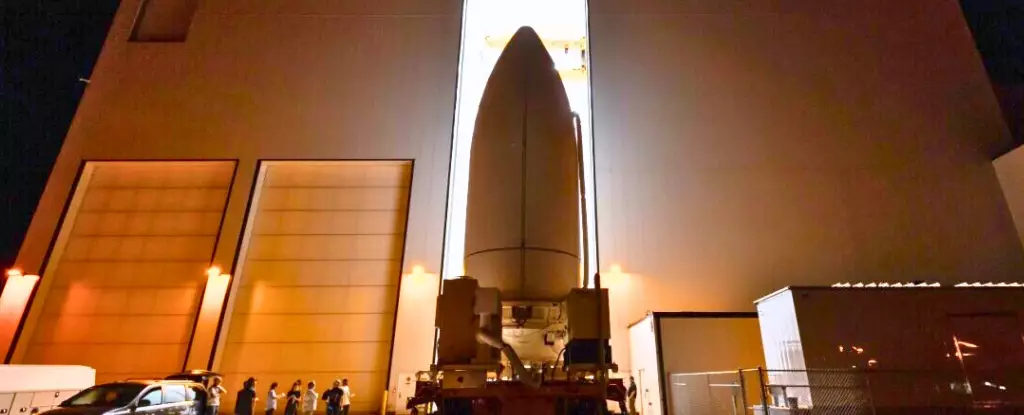Amazon’s upcoming launch of the Project Kuiper satellites represents a thrilling new chapter in the landscape of satellite-based internet services. Scheduled for April 9, 2023, the launch of 27 satellites atop an Atlas V rocket from Cape Canaveral is not just a technical feat; it is a statement of Amazon’s intent to directly compete with industry leaders like SpaceX and their Starlink project. The name of the mission, Kuiper Atlas 1, alludes to Amazon’s ambitious vision—a vision aimed at delivering high-speed, low-latency internet to the most marginalized and hard-to-reach regions across the globe.
Technological Advancements on Display
The satellites being deployed mark a significant technological advancement over the initial prototypes tested in October 2023. These cutting-edge devices are designed specifically to enhance the quality and speed of internet access, reaching areas that have long been left in the digital dark. Amazon’s assertion that Project Kuiper aims to extend connectivity to “war zones or disaster-struck areas” underscores the humanitarian potential of their initiative. This orientation not only aims to strengthen their market position but also aligns them with global humanitarian efforts—a combination that adds ethical weight to their commercial goals.
Facing Stiff Competition
By entering into direct competition with SpaceX, Amazon faces a formidable rival that has already established itself as the dominant force in satellite internet provision, boasting a fleet of over 6,750 operational satellites. The competitive landscape is crowded; China’s GuoWang constellation plans to deploy an impressive 13,000 satellites, while smaller players like Telesat and Rivada are aiming to carve out their own niches. This context makes Amazon’s launch even more crucial, as they look to stake their claim in a rapidly evolving industry ripe with potential yet fraught with challenges.
The Implications of Large-Scale Satellite Networks
The environmental impact of deploying thousands of satellites is one of the critical concerns surrounding mega-constellations like Project Kuiper. These large-scale operations raise questions about space debris and the sustainability of such ambitious projects. If not managed properly, the risk of collision in Earth’s orbit could jeopardize both existing satellites and long-term space exploration goals. While Amazon has pledged to address these complexities, it remains essential for regulatory bodies to ensure that the rapid advancements in technology do not outpace the frameworks needed to safeguard our orbital environment.
The Future of Global Internet Access
As Project Kuiper positions itself within this competitive landscape, it is essential to consider the broader implications for global connectivity. The democratization of internet access can empower developing regions, enhance educational opportunities, and provide vital lifesaving resources during crises. If successful, Amazon will not just reshape its future but could also revolutionize how millions around the world experience the internet. The stakes are high, and the potential benefits are immense, making this a narrative worth following closely. In a world that increasingly relies on digital interaction, initiatives like Project Kuiper could redefine the parameters of accessibility and inclusivity in an interconnected society.


Leave a Reply